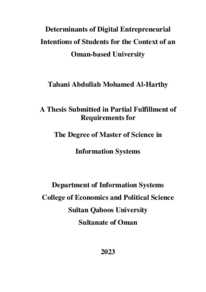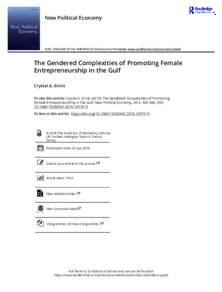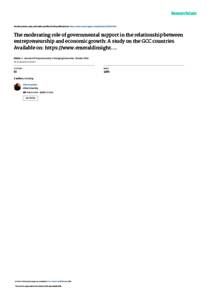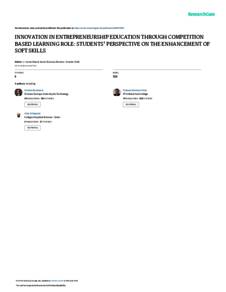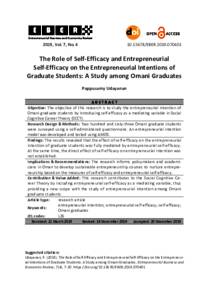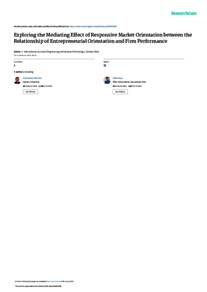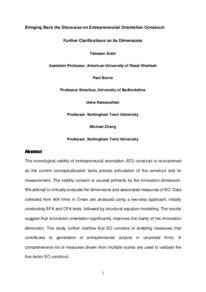Document
Determinants of digital entrepreneurial intentions of students for the context of an Oman-based university.
Source
Master's thesis
Country
Oman
City
Muscat
Publisher
Sultan Qaboos University
Gregorian
2023
Language
English
Thesis Type
Master's thesis
English abstract
Digital Entrepreneurship (DE) is an emerging trend in the current Industry 4.0 era (IR4.0).
Such a trend is primarily attributed to the dramatic advancements in digital technologies
followed by high awareness about the potential of using such technologies by the young
generation of society. DE represents a business model that employs digital artifacts,
platforms, and infrastructures to facilitate the capture, processing, transmission, and
exchange of digital data and knowledge sharing. DE brings multiple advantages: a) low
initial cost, b) a lower threshold for startups compared to traditional business models, and
c) easy access to information and networks. Such advantages make DE more appealing
to the younger generation. Several studies reveal that the current market needs to be more
saturated with young and inexperienced graduates, and their numbers have been growing.
While searching for suitable employment, many of these graduates are beginning to
entertain the idea of launching their online businesses using digital platforms.
The research work reported in this thesis aims to develop a rich understanding of the
extent to which various factors (technical and non-technical) can help shape the formation
intentions of university students toward DE in the context of Oman. A key focus of this
project is to develop and empirically assess a comprehensive, integrated model that
includes various technological factors derived from a popularly used technology-oriented
theoretical model (e.g., the Unified Theory of Acceptance and Use of Technology Model
– UTAUT2) and several non-technological factors (identified from the relevant literature)
for affecting Oman-based university students' intentions towards DE. The project adopted
a quantitative approach involving a survey of responses from 305 students at Sultan
Qaboos University, Oman. IBM SPSS software and structural equation modeling (SEM)
techniques have been used for analyzing the collected data. The results show that habit,
digital literacy, creativity, and effort expectancy are directly associated with students'
intention toward DE. However, performance expectancy, self-efficacy, facilitating
conditions, digital experience, social influence, and price value did not significantly affect
intention against DE. The study provides insights to government and academic
institutions to understand university students’ intention to undertake DE. Also, this study
finding will assist educators and researchers in understanding what encourages and
inhibits students' intentions to become online entrepreneurs.
Category
Theses and Dissertations

